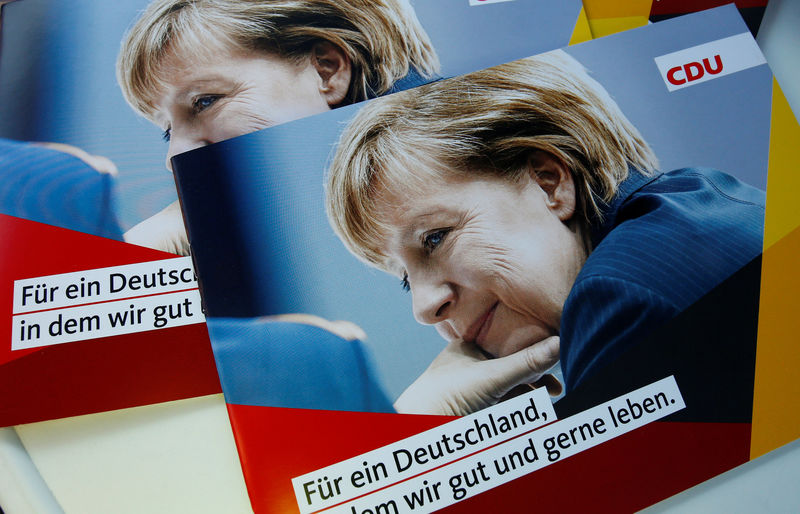(Reuters) - Germany's planned defence spending hikes will not trigger welfare cuts, Chancellor Angela Merkel said, rebutting criticism from her Social Democrat (SPD) rivals that she was caving in to U.S. demands for a bigger military budget.
The SPD is campaigning on a platform of social justice and has rejected demands from U.S. President Donald Trump that Germany meet NATO's spending target of 2 percent of national output on defence.
Merkel said that while it was necessary to increase defence spending, "that will not lead to any social expenditure being cut ... It won't come at the cost of anything we pay for today."
She was contradicting her party ally Jens Spahn, a state secretary in the finance ministry, who previously said slower increases in social spending could help finance the expanded military outlays her party advocates.
The SPD, trailing Merkel's conservatives by some 15 percentage points in polls ahead of elections next month, says Germany would have to nearly double current defence spending from 37 billion euros (33.63 billion pounds) to meet the NATO target.
Merkel has repeatedly said that perceived U.S. isolationism uner Trump and the threat posed by a resurgent Russia and by instability in Africa and the Middle East mean Germany and Europe must play a more active role in regional security.
Defence spending has risen under her coalition, in which the SPD is junior partner, but still falls short of the NATO target.

"Germany cannot submit to Mr. Trump's crazy demand to double our defence budget," said Foreign Minister Sigmar Gabriel, an SPD member. "It surprises me that on defence spending we name very concrete figures but not on education for example."